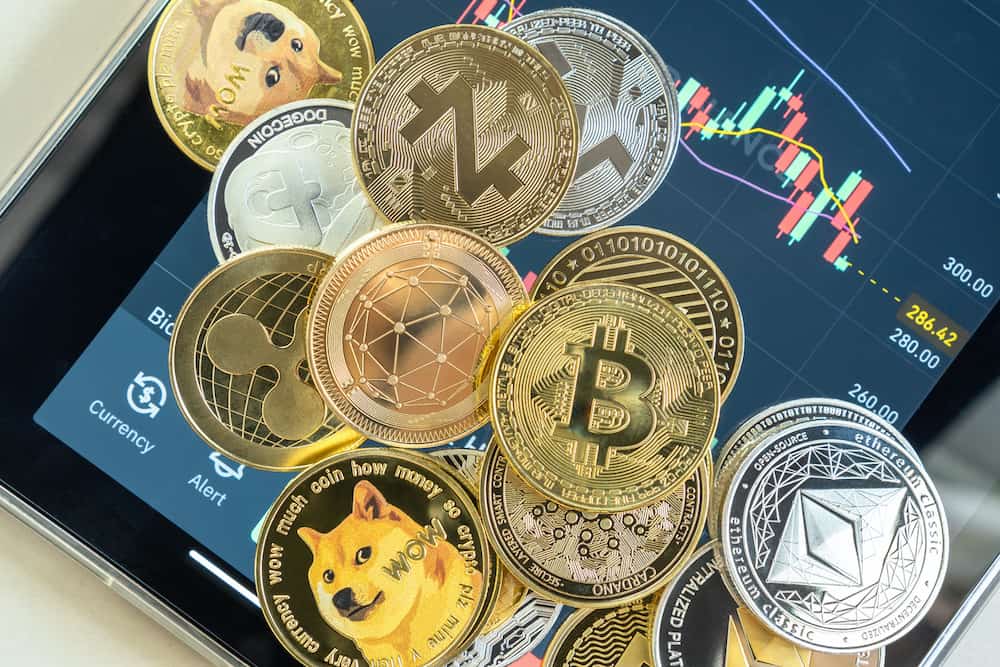The majority of traders focus on traditional assets, such as stocks, bonds, forex, and commodities. However, cryptocurrency has been a hot topic for years now, attracting all types of traders and investors, regardless of their skill and experience. The cryptocurrency industry is the epitome of risk, so we’ve put together a few crypto trading tips to help you mitigate risk while trading these assets.
1. Decide on a Trading Strategy
Before you buy your first crypto, you should define your strategy. When crafting your plan, you need to think about your availability, research skills, and experience. There are many strategies available, including scalpers (making multiple trades per day, usually for small profits), day traders, swing traders (usually making trades every few weeks), and passive investors, who buy and hold cryptocurrency for the long term.
2. Risk Management
The difference between pure gambling and cryptocurrency trading is risk management. Along with your trading strategy, you also need to clarify your risk management strategy and what tools you’ll use to limit the chance of losing money when trading crypto.
Examples of risk management tools include using stop-loss orders, thoroughly researching each digital asset before investing in it, and staying up to date with all relevant information regarding your assets.
Top Australian Brokers
- Pepperstone - Trading education - Read our review
- IC Markets - Experienced and highly regulated - Read our review
- eToro - Social and copy trading platform - Read our review
3. Diversification
Just like with traditional assets like stocks, diversification will help you mitigate some of the coin-specific risks. Spread your capital among different digital coins rather than buying only one coin.
If one coin loses popularity, your portfolio will remain relatively stable. Some recommend investing about 1% in one asset – so, even if it plummets one day, it won’t take down your entire portfolio.
4. Don’t Buy Just Because It’s Cheap
Beginners or traders with a low budget may be tempted to make this mistake. Unlike traditional assets, cryptocurrency has no intrinsic value. Thus, its price is low or high based on demand and supply. Sometimes, cheap is cheap for a very good reason, so it shows you that there’s something wrong with the asset. Hence, it’s important to check the user rates and market capitalization before investing in a cryptocurrency.
In general, it’s easier to use a broker that facilitates access to these assets while providing sufficient information and support. Hence, your crypto trading journey should begin with a process of picking the right service provider for your needs..To find out how to trade cryptocurrencies, you can check out ThinkMarkets.
5. Don’t Invest All Your Capital
You should never invest money you can’t afford to lose – such as cash you need to cover your living expenses in the next six months. Even when you save money, especially for trading, you should still keep an emergency cash fund in case something goes wrong. Also, when buying one cryptocurrency, you should not invest all your money into it – even if the platform you use may urge you to do so.
6. Keep Emotions Under Control
Perhaps you’ve already heard of FOMO – fear of missing out. FOMO is responsible for most of the failing trades nowadays. FOMO can make people impulsive and afraid they’re missing out on opportunities. As such, they can be more likely to rush decisions and buy or sell without proper due diligence.
It can be argued that FOMO is one of the main reasons why crypto markets are volatile. It’s important to do your best to contain your emotions when trading – including fear or greed. It’s crucial to make data-driven decisions when trading or, in other words, to always base your strategy on facts rather than intuition or emotions.
7. Exit Strategies
Most altcoin traders have come to realize that the majority of coins have a relatively short lifespan. It’s not only important to know when to buy but also when to sell. After a certain time, most alternative coins can lose their value, so it’s important to keep an eye on the daily trading volumes and cut your losses early when it’s the case, rather than holding onto a losing investment.
Summary
All in all, the world of crypto trading is not easy, but it can be extremely lucrative. When trading crypto, you need to do your diligence and test your strategy thoroughly before risking your hard-earned cash. The crypto market is very volatile, so you may need to gain some experience before you potentially see the profits increase. No single strategy is perfect, so starting with due diligence and testing your strategy may be key to making informed decisions and keeping your capital safe.






